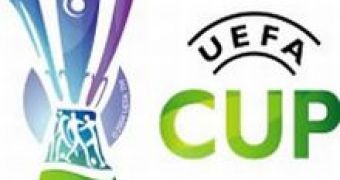On Wednesday night, Europe has chosen its first winners. Sevilla continued the winning series of Spanish football once again, and took the trophy for the first time in history. It was a game without any history. A speechless 4-0, that makes you just want to leave all those discussions about tactics, competitors' form and referring aside. There's just no point in talking about those things. 4-0 means, in footballers terms, total humiliation. It doesn't mean that we have nothing to learn from it, though. On the contrary, there's no greater lesson to be learned than the one that the English side have taught us on Thursday night.
Well, how should I start this?! I've said it in the article right after the game that I cheered for Middlesbrough. There's no secret about it. I did that because I wanted football to write another great page in its long history. A great fairy tale to tell our grandkids about a small English team that fought until their last drop of energy and rose out of its own dust to believe they can win. I don't know much about coincidences, but lately, that's something that only English teams do, starting with the incredible Manchester United - Bayern Munich CL final at Camp Nou, and continuing with the 2005 Champions League legendary game, when Liverpool defeated AC Milan after recovering a 0-3 deficit.
That's probably the reason why most of the so-called sports editors refer to it as being the "very attribute of the English nation, never giving up and always fighting till the end". Sorry, I don't care for that. To me, that's just pure coincidence, a coincidence of professional football. Something that any PROFESSIONAL player - with a little bit of conscience - can do at any time, no matter the country he comes from or the historical past of his fellow countrymen. But anyway?
What impressed me the most, after this UEFA final, was not the game, or the players' reaction, or even the great English fans. It was the way English journalists looked upon the whole thing. As everybody already knows, England is, along Germany, the European country with the most tabloids in the media. After the Boro - Sevilla final, I tried to find a place in English newspapers, where sports or gossip columnists would try to destroy McClaren's team after their pathetic performance. And, to my ultimate surprise, I never found one article in which Viduka to be named "an Australian convict", or Hasselbaink a "Middlesbrough trash", or Schwarzer a "pathetic alcoholic". If you don't recognize the epithets, maybe the Romanian readers do. These were the words a Romanian newspaper used to describe Steaua's players after their loss in the semifinal of the UEFA Cup. Even if Steaua allowed as many goals as Middlesbrough, suffering the same exact humiliation, every sports journalist in England applauded their team's performance. Admitting it was a humiliation after all, the writing did not enter an insulting trend, as it did back in Romania.
I was simply disgusted when I first red the article in the newspaper. If the only way these so-called journalists can sell their newspapers is by calling names and mocking the effort of the same people that give them what to write every day, then the Romanian media, especially the sports one, has got some serious issues to solve. Instead of looking at the sport as a simple competition, we got used to seeing every loss as an unbelievable blow to the "Romanian spirit". Give me a break? Romanian journalists were fooled to believe that players are not players, but real warriors, that sacrifice their life on the altar of "now or never" mentality. We think ourselves to be psychologists, not journalists, and we try to figure out the Psycho-tactic-historic-mental aspects of a simple loss in the game of football.
I just want to make one proposition. If every sociologist in Romania is trying to establish a Romanian-English parallel, I suggest they start with how Englishmen look at a loss. When it comes to football, I doubt they stay up until 2 or 3 o'clock in the night to see what went wrong or who's responsible for losing a simple game. They try to focus on the bottom line, not on the particulars. Thursday morning, the English media gave their Romanian correspondents something to learn about how we should treat our own values, as good or as bad as they are. It's a great quality to be able to admit where your limits lie and taking it as a fact and not getting angry because they're not higher. It's called making a positive critic. And it's something that, for the time being, Romanian journalists have no clue on how it's done.

 14 DAY TRIAL //
14 DAY TRIAL // 
